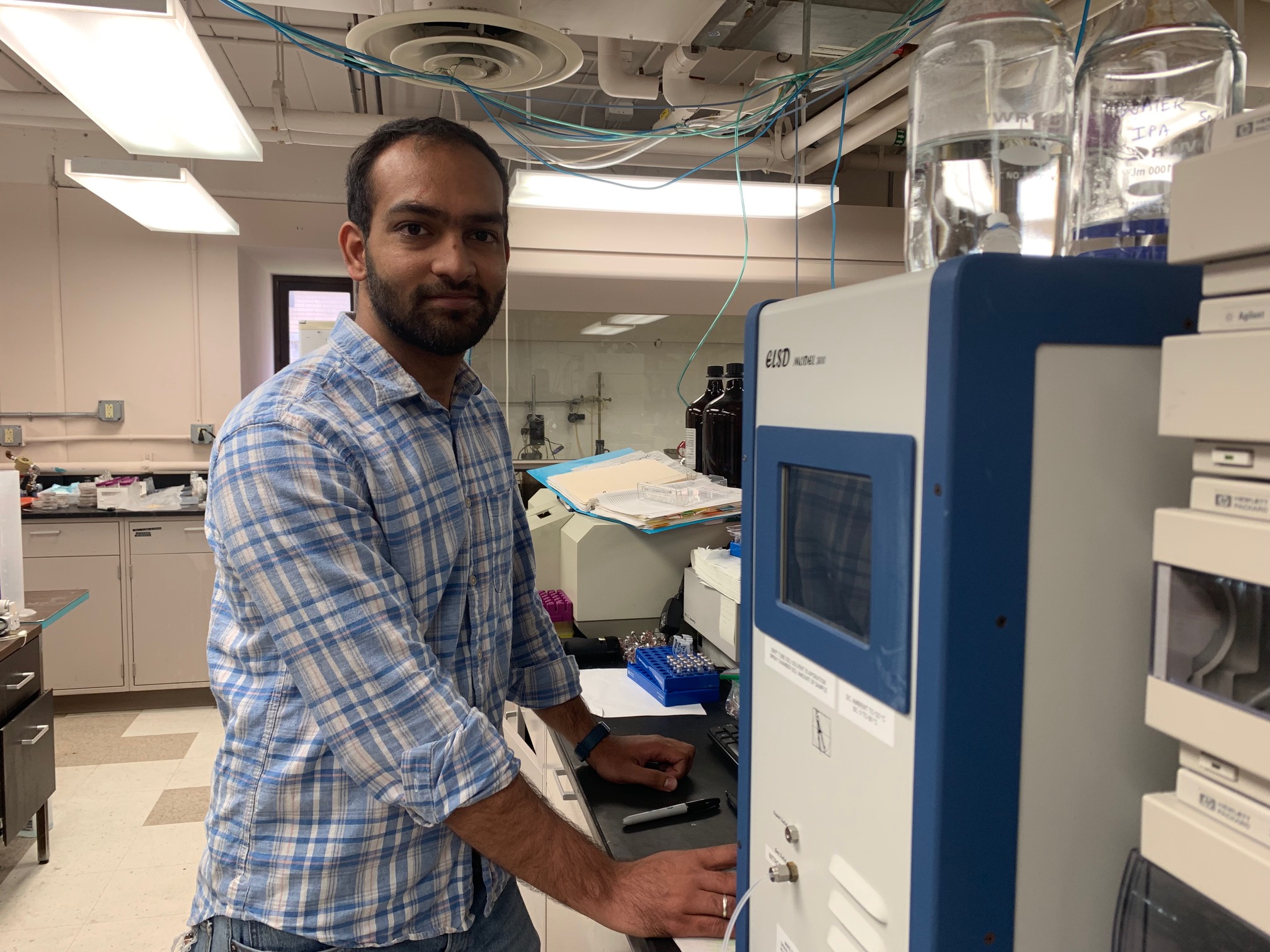Engineering student wins award for converting soybean waste into something useful
Most large-scale agricultural processes produce waste. One hardworking University of Akron chemical engineering student figured out a way to convert a major waste stream in soybean processing into something useful. And - when we are talking about a $40 billion dollar a year industry, the potential impact would be huge.
This is what Ashwin Sancheti, PhD in Engineering student, addressed in his recent presentation at the Annual American Oil Chemist's Society conference at St. Louis. In front of a room of doctoral students, career academics, and scientists, he described how enzymes can be used for breaking down complex carbohydrates that are present in soy molasses, the wasteful byproduct of soybeans.

Ashwin Sancheti using the high-performance liquid chromatography machine for his research on soy molasses.
Soybeans produce soybean oil, a valuable product used in industrial and consumer products from candles to cosmetics. Soybeans are also a rich source of protein for food and feed uses. Collecting oil and high-protein products from soybeans leaves behind a large amount of soy molasses as a no or low-value byproduct, which is sometimes used as an additive in animal feed.
Sancheti’s presentation focused on using enzymes to convert the soy molasses into sugars like glucose, fructose and galactose. These sugars can then be fermented into other bioproducts that, for example, can be used in different oil-based applications ranging from lubricants to soaps and polymer additives. The market values of these products are much higher than the soy molasses.
Sancheti, along with his advisor Dr. Lu-Kwang Ju and other researchers, have been working on this project for a few years. The project is sponsored by the United Soybean Board as part of a biorefinery team consisting of universities and companies.
Though this project is in the research phase right now, the research team hopes to take it to scale one day.
“I can already see this moving from a study in a lab to a pilot program in a soybean plant in the near future,” says Sancheti.
Interested in learning more about the College of Engineering's PhD program? Check us out!
